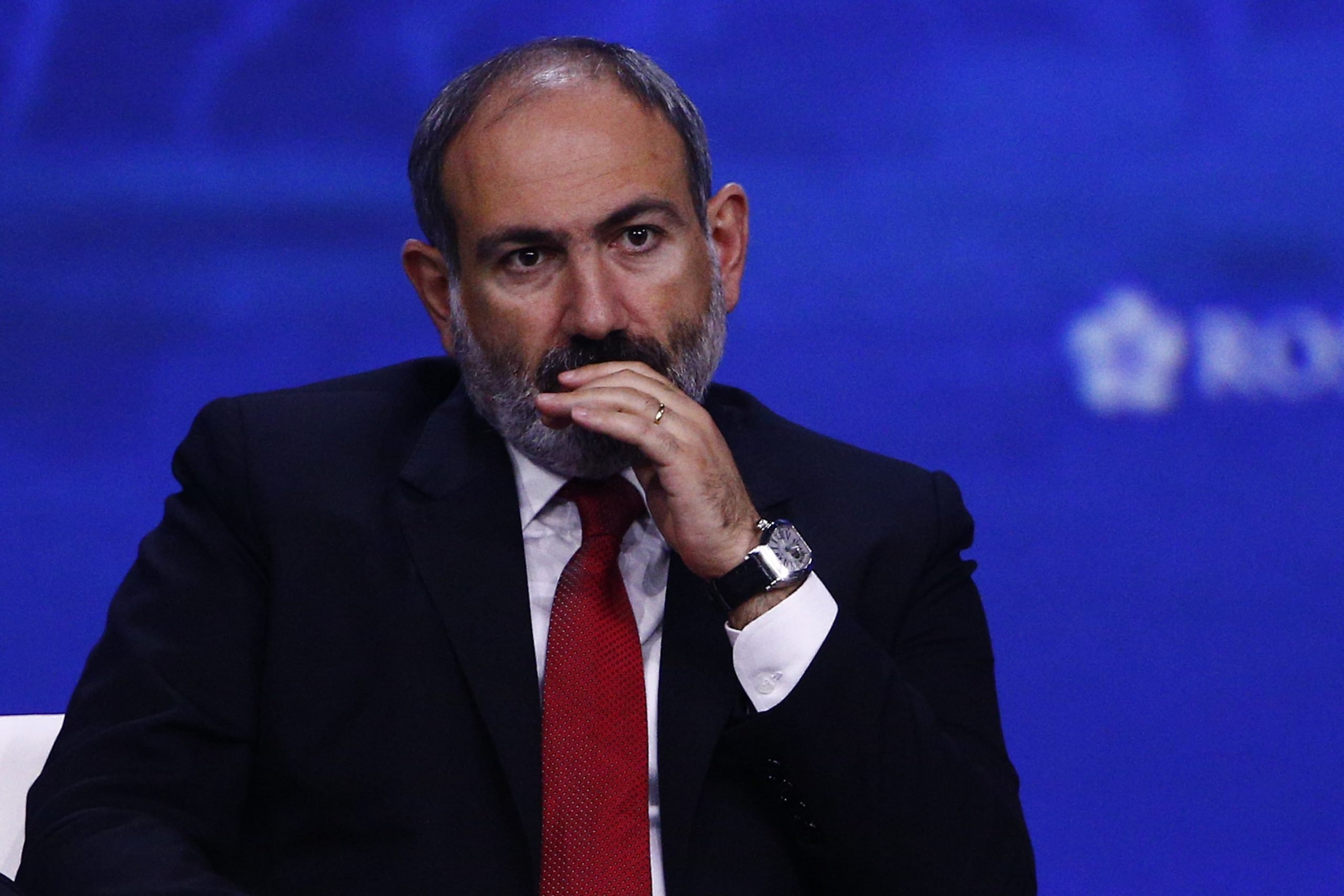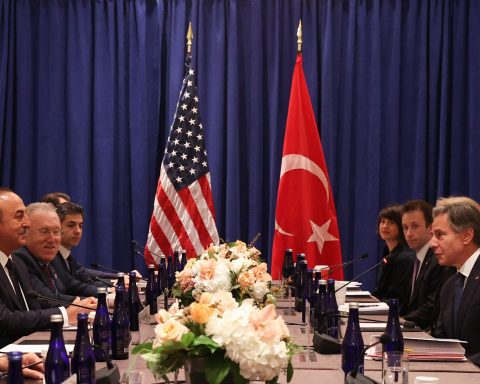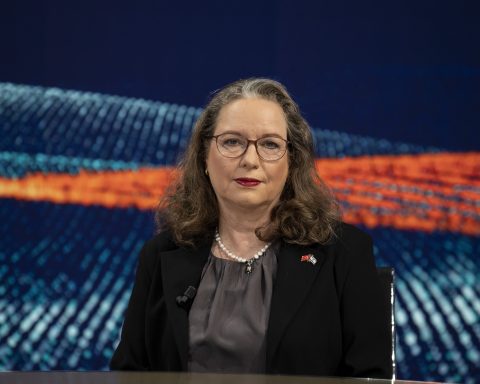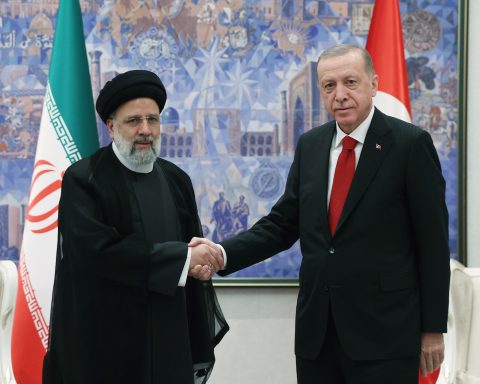The steps taken to re-establish the ties between Turkey and Armenia seem more real than ever following last year’s bloody war in Karabakh.
Turkey and Armenia have decided to appoint special envoys to proceed with the normalization and peace in the region. Borders between the two countries were closed and diplomatic relations have been suspended after the Armenian occupation in Karabakh for almost three decades ago.
However, normalization attempts are not new. In the early 2000s, some limited charter flights between Istanbul and Yerevan were established. After almost a decade of silence between two neighbors, another normalization attempt came with the infamous “football diplomacy” period in 2008-2009. Two presidents at the time, Abdullah Gul and Serzh Sargsyan, attended a match between two countries in the Armenian capital and this took the procedure to the Zurich Protocols where the official normalization procedure was discussed.
The “football diplomacy” period faced a great failure after witnessing a massive decline in relations between Turkey and Azerbaijan. Baku strongly opposed Turkey’s normalization attempt, claiming that it should not start unless the conflict in Karabakh was solved. The ratification of the protocols also never happened.
During this period, a “flag crisis” also happened between Turkey and Azerbaijan where Azerbaijani flags were not allowed in the match between Turkey and Armenia in Bursa, while Turkish flags were lowered in Baku.
Looking back to a decade ago and considering the current highest level of relations between Ankara and Baku, it is almost impossible to think such “dark moments” were present in the relations between the two allies. However, it is also important to understand how ties between Turkey and Armenia were fixed to the Karabakh conflict.
Now, we do not see the same opposition from Baku. The major reason for this is the Second Karabakh War in 2020 which resulted in Azerbaijan’s liberation of its occupied lands. Turkish assistance to Azerbaijan during this period was overwhelming which strengthened the bonds between the two countries and opened new opportunities in the region.
The frozen conflict in Karabakh was the biggest but not the only obstacle in the relations between Turkey and Armenia. Territorial claims and calls, mainly for the recognition of the so-called “Armenian Genocide”, were strongly emphasized by Yerevan in case of any further normalization attempts. For Turkey, it was also important that Armenians withdraw their claims and depoliticize the debate on the events of 1915.
Nevertheless, it seems that both nations are ready to restart the talks without preconditions. Despite the solution in Karabakh and silence from the Azerbaijani side on the latest normalization talks, Turkish Foreign Minister Mevlut Cavusoglu still stated that the decisions will be taken in consultation with Baku.
The process shows parallels with an initiative proposed after the war last year. According to this proposal, the countries of the South Caucasus could meet in a 3+3 platform to discuss the future of the reopening of communication and transport lines. While Georgia is still skeptical toward this platform because of Russian involvement, other parties to the platform already held their first meeting which gave positive signals on the rebuilding of the connectivity between platform members.
Aside from regional players, the West is also interested in reopening the borders between Turkey and Armenia. US President Joe Biden discussed the matter in a meeting with Turkish President Recep Tayyip Erdogan early this year. Furthermore, Washington showed its appreciation after the appointment of the former Turkish Ambassador to the US Serdar Kilic as Special Envoy to Yerevan.
Another Western heavyweight, the EU, was also positive about the regional developments after the Azerbaijani and Armenian leaders’ meeting in Brussels which resulted in a further agreement on opening railways between Turkey and Azerbaijan through Armenia.
But what exactly should we expect from the normalization attempts? The major question lies behind the actual effects of the talks on the region and bilateral ties.
It is a known fact that Armenia has suffered from an economic blockade for decades. The country lost its only land connection with Russia after the 2008 Russo-Georgian War. Therefore, now Moscow supports the reopening of regional communications despite some claiming that it will increase Turkey’s influence in the region. Also, Russia has officially stated that they will also be part of the normalization process upon Armenia’s request.
Having a population just shy of 3 million people without any natural resources also puts Armenia in a difficult economic situation. Huge energy infrastructure projects and investments such as the Baku-Tbilisi-Ceyhan pipeline and Baku-Tbilisi-Kars railway evaded passing through Armenian soil, further devastating its prospects for development.
Now, voices among the Armenian population that demand change have become more and more evident. In particular, border villages that deal with agriculture are strongly in favor of opening the Turkish-Armenian border which will decrease prices and boost exports.
Nevertheless, the process will not be simple and without obstacles. Armenia’s “unconditional” approval for the normalization drew huge criticism from the Armenian diaspora who claim that the reopening of the borders will “Turkify” Armenia and make the country a “puppet” of Turkey and Azerbaijan.
It is not surprising to see such opposition from the Armenian diaspora to any positive process involving Turkey since the soft power that they hold mostly derives its power from anti-Turkish sentiments.
Therefore, Armenia needs the normalization with Turkey not just for economic purposes but to have an independent foreign policy as well. The independent foreign policy of Armenia, which would envision having good relations with all of its neighbors, will limit the hostile voice of the diaspora and their control over Armenian citizens.
Positive results of any direct contact between Turkey and Armenia can be an example of how two nations can solve their problems without third-party interference.
This will also decrease the chances of foreign manipulators on developments in the South Caucasus who profit from frozen relations and tensions.
The recent hopeful messages from both sides can be considered as a starter for permanent peace and stability in the region. Nevertheless, it should be also remembered that, in the end, both countries will act according to their national interests and there is still a long way to go to fully revitalize bilateral cooperation.














